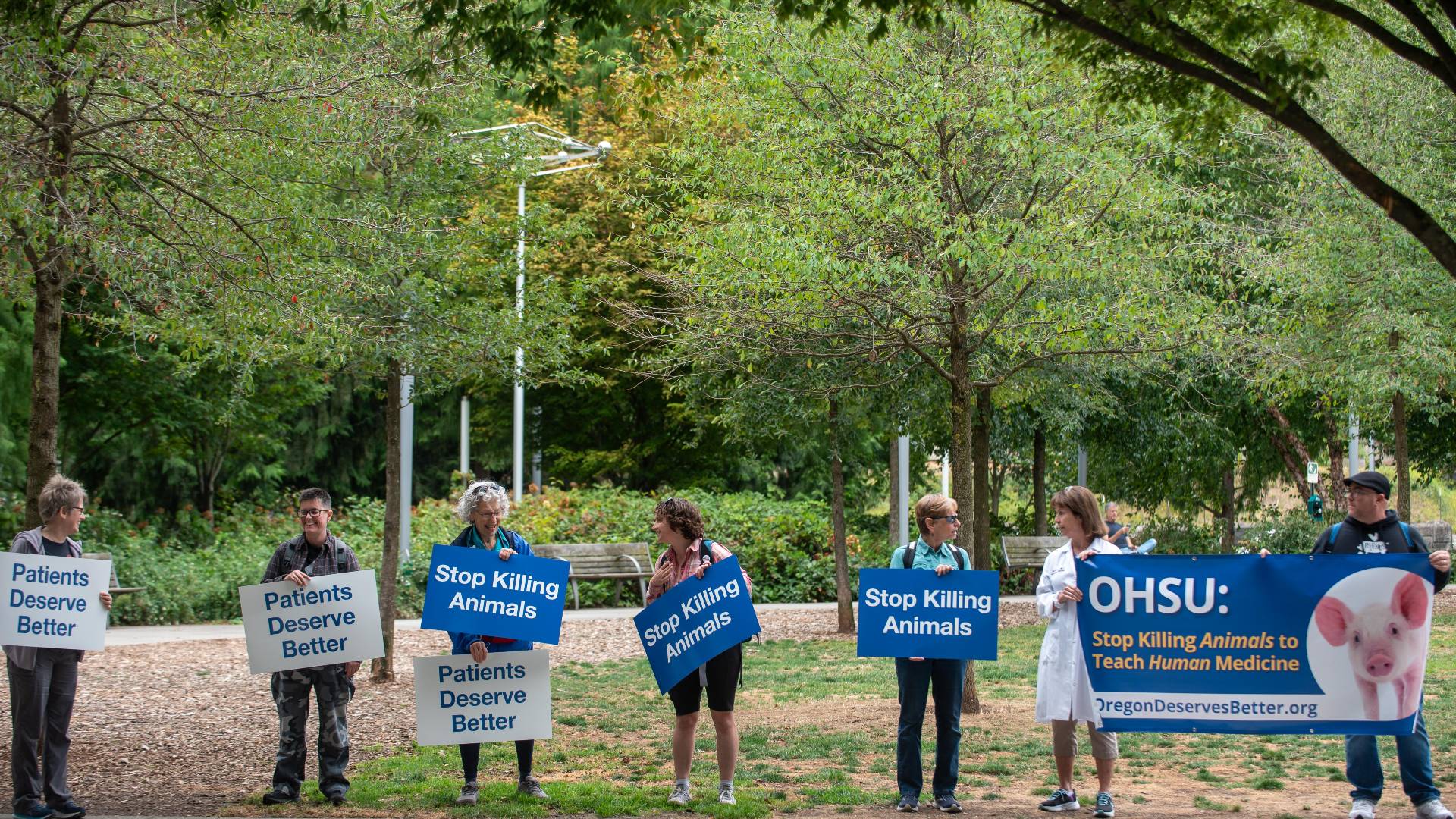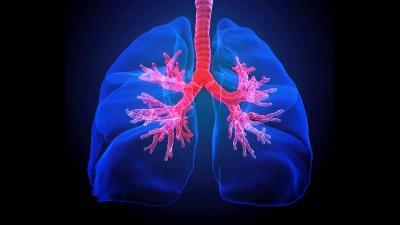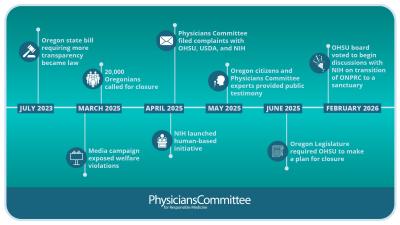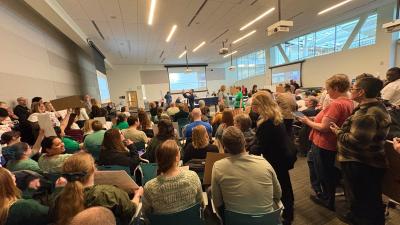Doctors Protest OHSU, Urge Animal-Free Medical Training
Physicians Group Holds Demonstration, Runs Ads on Streetcar and Bus Shelters

PORTLAND, Ore.—The Physicians Committee for Responsible Medicine is challenging Oregon Health and Science University’s use of live animals in its surgery residency program. Joined by locals, the nonprofit of more than 17,000 doctor members held a demonstration at Elizabeth Caruthers Park, near OHSU’s lower campus. Dr. Kerry Foley, a retired emergency medicine physician from the Washington, D.C., area, and the rest of the group presented signs reading “OHSU: Stop Killing Animals to Teach Human Medicine. OregonDeservesBetter.org,” “Patients Deserve Better,” and “Stop Killing Animals.” The Physicians Committee is also running ads on the Portland Streetcar as well as on nearby bus shelters. The message on the ads says “Does OHSU Think You’re a Pig? Stop Killing Animals to Train Doctors. OregonDeservesBetter.org.”
OHSU’s surgery residents are instructed to cut into live pigs and perform invasive procedures as part of their training, even though 80% (210 of 264) of surveyed U.S. residencies do not use animals. The pigs are subjected to 35 different invasive procedures before they are killed, some of which include: chest tube placement (to drain air, blood, or other fluids), inserting a breathing tube into the throat, inserting a needle into the sac around the heart, inserting surgical tools and a camera, removal of the gallbladder, and a procedure where a portion of the stomach is wrapped around the esophagus.
All other civilian surgery residency programs in Oregon and Washington—including the University of Washington, Samaritan Health Regional Medical Center in Corvallis, and Swedish Medical Center—use only human-relevant nonanimal methods for training, devices that simulate human anatomy. These simulators can include layers of lifelike skin, muscle, fat, and blood vessels. They can bleed, and some of them provide lifelike physiological responses. Compared to the human body, pigs have smaller torsos, lighter limbs, and thicker skin. There are also important differences in the anatomy of the head and neck, internal organs, rib cage, blood vessels, and the airway.
“Oregon really does deserve better from the top ranked hospital in the state,” says Kerry Foley, MD. “Both Oregonians and doctors training at OHSU are counting on the university to deliver the best possible training, and that means ending the use of live animals and switching over to 100% human-relevant methods, as the vast majority of surgery residencies have done. Using animals requires residents to re-learn procedures when they come face to face with human anatomy, a highly inefficient way to educate or learn.”
For photos from the demonstration or to see the ad artwork or locations, please contact Reina Pohl at 202-527-7326 or rpohl [at] pcrm.org (rpohl[at]pcrm[dot]org).
Media Contact
Reina Pohl, MPH
202-527-7326
rpohl[at]pcrm.org
Founded in 1985, the Physicians Committee for Responsible Medicine is a nonprofit organization that promotes preventive medicine, conducts clinical research, and encourages higher standards for ethics and effectiveness in education and research.







